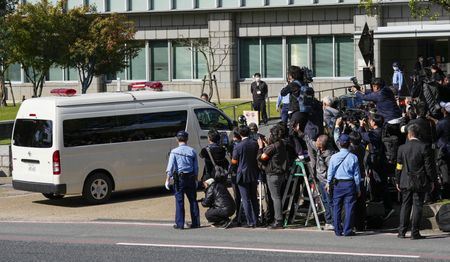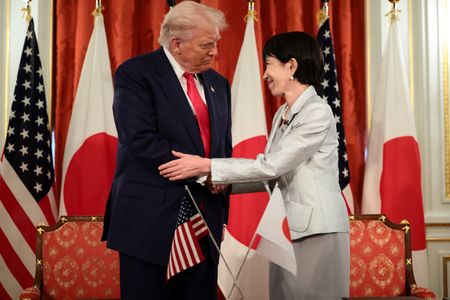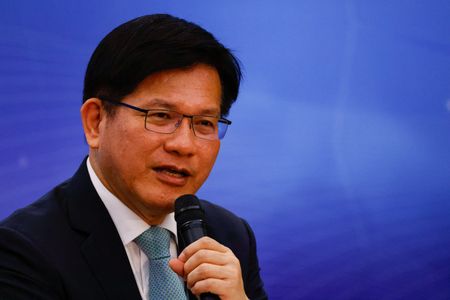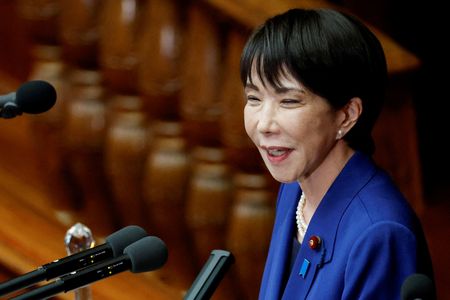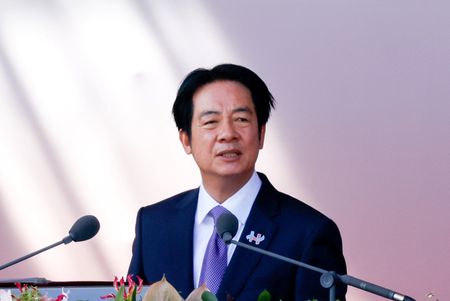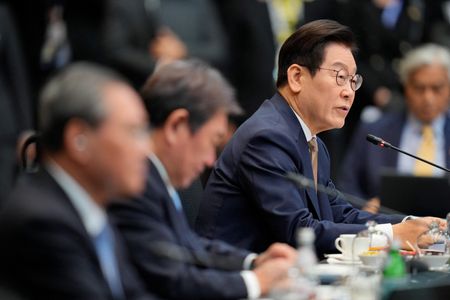BISHKEK (Reuters) -A court in Kyrgyzstan has banned three of the country’s top independent media outlets as “extremist organisations”, the first such ruling in the country’s history, weeks ahead of a snap parliamentary election.
The decision, issued on Monday but only publicised on Tuesday, bans the Kloop, Temirov Live, and AitAit Dese outlets’ websites, the first such ban in the country to target journalists and media outlets.
It also outlaws any activities “under the leadership or participation” of journalists Bolot Temirov and Rinat Tukhvatshin, the leaders of two of the banned outlets.
AUTHORITARIAN SHIFT IN KYRGYZSTAN
Once Central Asia’s most democratic country, Kyrgyzstan has become rapidly more authoritarian under President Sadyr Japarov, a nationalist and populist who was swept into power by a wave of demonstrations in 2020.
Press freedom groups have warned that Kyrgyzstan, a country of around 7 million once considered a rare haven for independent journalism in Central Asia, is facing a rapid decline in media freedom.
“This is another round of repression that will not only affect us but also damage Kyrgyzstan’s reputation and criminalize many uninvolved people,” Kloop co-founder Rinat Tukhvatshin said in a post on Telegram, adding that he planned to appeal.
The court did not specify which materials were deemed extremist. Tukhvatshin said defendants were not informed about the case beforehand and learned of the ruling from social media.
The move follows a new media law signed by President Japarov in August requiring all media, including online platforms, to register with authorities. Rights groups warned the law could be used to silence dissent and restrict press freedom.
PRESIDENT SEEKS TO EXPAND CONTROL OF LEGISLATURE
It also comes weeks before snap parliamentary elections set for November 30, in which Japarov allies are seeking to expand their dominance of the legislature.
Japarov, who denies charges of authoritarianism, has said he hopes to win reelection in 2027 with 90% of the vote.
A close ally of Russia traditionally dependent on migrant labourers traveling there for work, Kyrgyzstan has enjoyed rapid economic growth as a staging post for imports to Russia redirected by Western sanctions.
Western countries have sanctioned several Kyrgyz banks, as well as a local stablecoin backed by the Russian rouble, accusing them of facilitating Moscow’s sanctions evasion.
(Reporting by Aigerim Turgunbaeva in Bishkek; Writing by Felix Light in Tbilisi; Editing by Conor Humphries)


